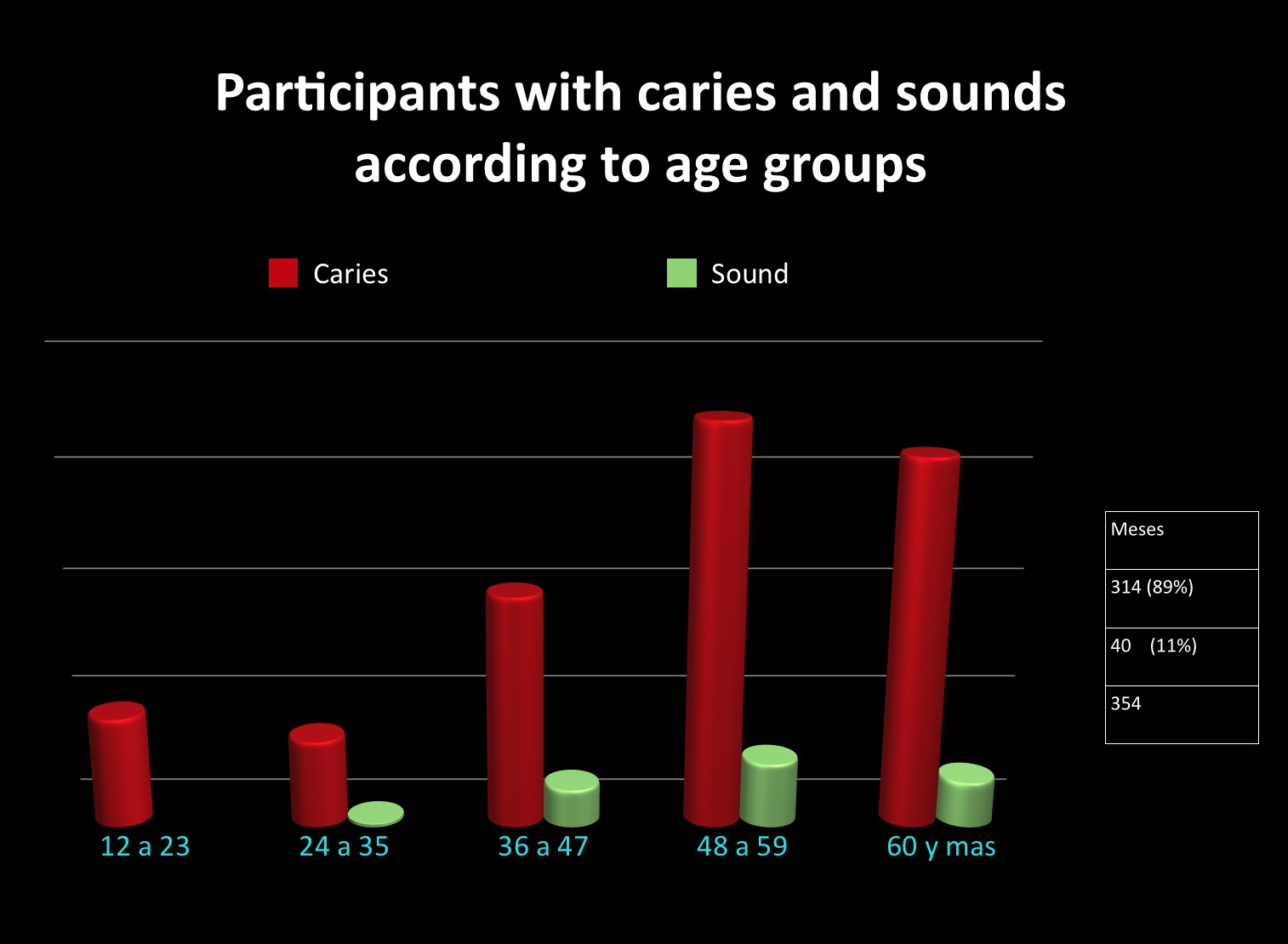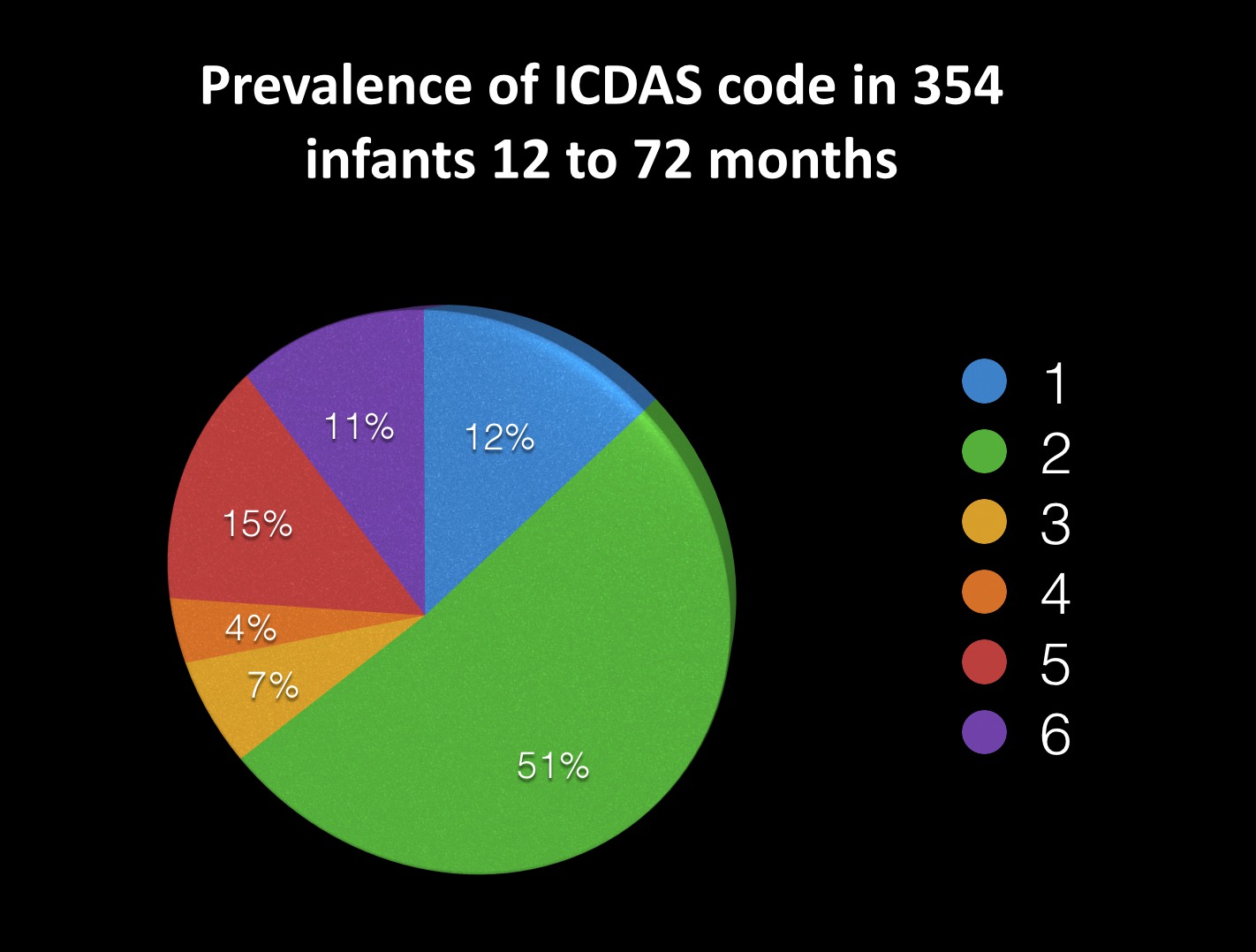IADR Abstract Archives
Caries Prevalence in Costa Rican Preschoolers Using ICDAS Criteria
Objectives: The aim of this descriptive, cross sectional study, was to determine the oral health status a group of children living in areas of high concentration of poverty in urban and rural areas using an clinical examination from 6 calibrated examiners (inter and intra examiner Kappa > 0.8) with the International Caries Detection and Assessment System (ICDAS)
Methods: The participants consisted in 354 children under 6 years old, 85.87% (n = 304) residing in the metropolitan area of San José distributed as follows: 120 were enrolled in a private kinder garden and 184 enrolled in two Education and Nutrition Centers (CENCINAI) belonging to the Ministry of Health of Costa Rica, defined as infants in poverty; and 50 infants enrolled in special education centers located in Liberia (n = 33) and Cartago (n = 17). The gender distribution was 183 male 51.69% (n = 183) and 48.30% (n = 171) girls.
Results: The prevalence of dental caries was 89% (N=314), divided in 12 to 23 months= 9.2%; 24 to 35= 7.3%, 36 to 47= 19.4%, 48 to 59= 33.4% and 60 to 72= 30.6%. Boys had significantly higher caries prevalence (53.2%) than girls (46.8%). In total 30652 surfaces were examined, 2293 surfaces presented caries. ICDAS code 2 was predominant (51.4%), but other codes also contribute: code 1=12.2%; code 3=6.8%; code 4=4.1% code 5=14.9% and code 6=10.8%.
Conclusions: In this population with 12 to 71 months incipient carious lesions are the most common, so it is important to conduct a study with more participants to plan an educational and treatment plan to prevent progression of caries
Methods: The participants consisted in 354 children under 6 years old, 85.87% (n = 304) residing in the metropolitan area of San José distributed as follows: 120 were enrolled in a private kinder garden and 184 enrolled in two Education and Nutrition Centers (CENCINAI) belonging to the Ministry of Health of Costa Rica, defined as infants in poverty; and 50 infants enrolled in special education centers located in Liberia (n = 33) and Cartago (n = 17). The gender distribution was 183 male 51.69% (n = 183) and 48.30% (n = 171) girls.
Results: The prevalence of dental caries was 89% (N=314), divided in 12 to 23 months= 9.2%; 24 to 35= 7.3%, 36 to 47= 19.4%, 48 to 59= 33.4% and 60 to 72= 30.6%. Boys had significantly higher caries prevalence (53.2%) than girls (46.8%). In total 30652 surfaces were examined, 2293 surfaces presented caries. ICDAS code 2 was predominant (51.4%), but other codes also contribute: code 1=12.2%; code 3=6.8%; code 4=4.1% code 5=14.9% and code 6=10.8%.
Conclusions: In this population with 12 to 71 months incipient carious lesions are the most common, so it is important to conduct a study with more participants to plan an educational and treatment plan to prevent progression of caries


